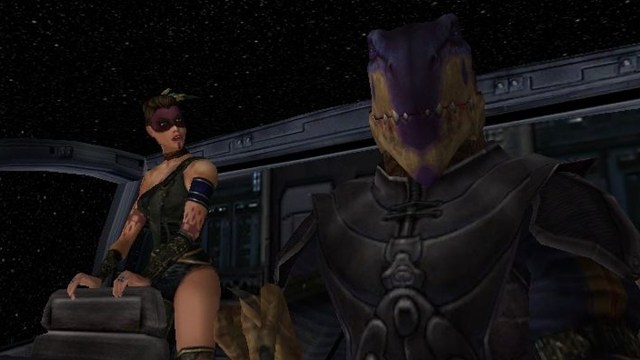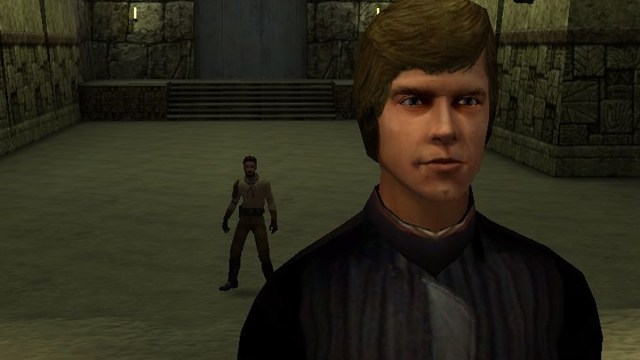The debut season of The Acolyte, the latest Star Wars series to overtake Disney+, is nearly at its end. It has been a long road, but at last, the show has provided some answers to the many questions it posed early on.
Most importantly, The Acolyte has revealed the main antagonist of the story: the Stranger, also known as Qimir (Manny Jacinto). He’s also quite a beast on the battlefield, utilizing his red lightsaber and experience with the Force to strike down several Jedi in Episode 5, “Night.”
Of course, there’s more to Qimir’s victory than mere skill with a lightsaber or knowledge of the Force. His few pieces of armor also proved essential to his success, as they managed to deflect lightsabers and prevent telepathic communication in the case of the helmet. That’s because Qimir’s armor is made of a specific, highly rare metal called cortosis, which, up to this point, hasn’t received much of a spotlight in Star Wars canon. It has only come to the forefront in a handful of print projects and is only now making its live-action introduction.
Long before it appeared on The Acolyte, however, cortosis and its applications were thoroughly explored in the Star Wars Legends continuity. Sith such as Darth Tenebrous and Darth Plagueis mine it for their own gain. It’s used during the Clone Wars to aid the footsoldiers on both sides of the conflict, and various weapons are constructed from it to stand toe-to-toe with traditional lightsabers. Suffice it to say that it’s pretty important to have multiple stories across the Legends timeline.
Additionally, cortosis took center stage during the campaign of one of the most overlooked Star Wars video games to hit the market in the 2000s.

Cortosis is central to the story of Star Wars Jedi Knight II: Jedi Outcast
One of the sequels to the recently remastered Star Wars: Dark Forces, 2002’s Star Wars Jedi Knight II: Jedi Outcast, continues the story of Kyle Katarn as he reconnects with his Jedi side and aids Luke Skywalker in rooting out the Imperial Remnant, as well as protecting the reestablished Jedi Academy.
This time, the threat is one of Luke’s former padawans, Desann, who seeks to create an army of Dark Jedi to destroy his former master, his current students, and the entire Jedi Order. During the campaign, it’s revealed that, as part of his scheme to do so, he’s collecting cortosis.
During the story, it comes to light that gangster Reelo Baruk has been involved in a cortosis smuggling operation. Katarn learns that the Remnant has taken it over, using it to form armor for its Force and lightsaber-wielding Shadowtroopers, giving them a distinct advantage over Luke and his students. Players even have to battle some of these troops in-game, proving a challenge compared to the less-durable Dark Jedi, the Reborn.

Jedi Outcast is still worth a play-through today
Cortosis isn’t unique to Jedi Outcast but is central to its story. It effectively demonstrates how the metal can be used and the threat it can pose if it falls into the wrong hands. While it hasn’t been explicitly stated that Jedi Outcast influenced The Acolyte (though the series was inspired by past Star Wars games) regarding its use of cortosis, the parallels exist. In both cases, the Jedi are caught off-guard over their dark side enemies’ use of the material and are forced to adjust to the revelation with little time to spare. Thus, with Star Wars canon picking apart elements of the Legends game, perhaps it would be wise to give Jedi Outcast another look all these years later.
Aside from potential canon connections to watch for in the future, Jedi Outcast has a lot to offer. The intriguing story takes players through a range of environments, from military bases to waterlogged valleys. This variety keeps the action fresh, as does the litany of weapons and Force abilities. While a tad repetitive, the overall gameplay is engaging enough, and the side modes like duel and capture the flag are a good time with friends. To top it all off, there are plenty of references to the Star Wars universe and appearances from iconic characters to keep the game firmly rooted in the galaxy far, far away.
Is Jedi Outcast the premier Star Wars gaming experience? Probably not. Some would argue that its 2003 sequel, Star Wars Jedi Knight: Jedi Academy, is better, but it’s far from a waste of time should you pick it up. It’s a good play, and, as evidenced by The Acolyte‘s use of cortosis, for all we know, it could contain more lore elements that will soon trickle into the modern canon.






Published: Jul 6, 2024 09:38 am